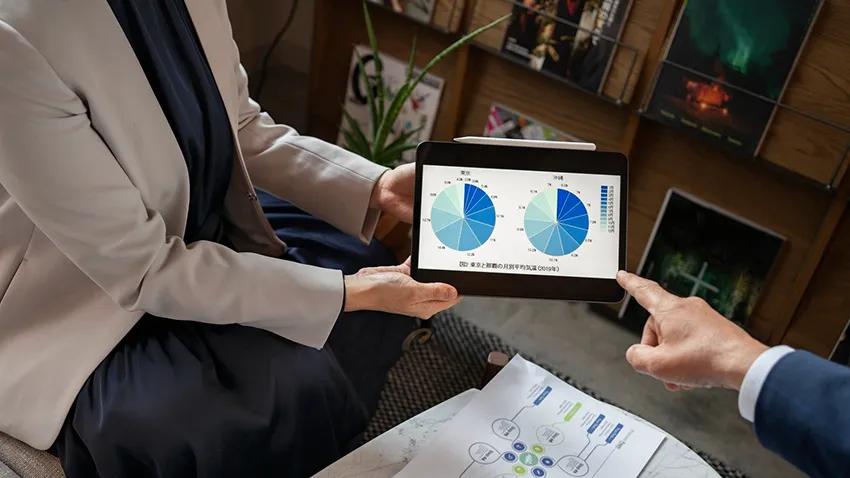
To participate in the stock market, or to buy or sell stocks, it is important to open a Demat and a trading account. In this article, you will understand the purpose of a trading account and how a trading account allows traders to buy or sell securities. The trading account is an important part of buying and selling shares, transferring money, and more. It plays an important role in connecting different accounts and stock exchanges. An investor can own multiple trades based on their investment goals. These multiple accounts include a margin account, a long-term goals account, a buy-and-hold account, and a day trading account. But you can do all of this from a single trading account. A trading account helps a trader in multiple ways, and to learn about a trading account and its usage, you must understand the digital transformation of trading. The digital era eliminates the use of physical securities and uses dematerialised shares to trade online. Online trading has made trading simple, fast, and reliable. Investors who have no knowledge about stock trading can also learn and manage their own financial portfolios.
Table of Contents
Difference Between a Demat Account and a Trading Account
Trading Account
A trading account is a digital account that is used to do buying and selling in the online market. You can also say a trading account provides a link between your trading account and your Demat account.
- The funds you add are also transferred through your trading account.
- When you open a trading account, you can trade in commodities, ETFs, mutual funds, currencies, and futures and options.
- A trading account is a vital component of intraday trading. As intraday traders buy and sell shares after a few hours on the same trading day. Without a trading account, you cannot trade in the stock market.
- Unlike olden days, trading accounts are managed by brokers, and traders need to be physically present on the trading floor. Traders need to verbally communicate and place an order to buy or sell shares. The securities in those days were in paper format, which caused problems such as forgery, loss or duplication.
- A trading account has two types of brokers: the first is the new-age broker, and the other is the traditional broker. A traditional broker charges high fees with full-service brokers, which means complete trading and consulting solutions. In the case of discount brokerage the brokerage charges are low, but the trade is completely dependent on your research and method of trading. The debit and credit of money take place through the linked bank account.
Demat Account
A Demat account is a place where you can convert and hold all your financial securities in digital format.
- A Demat account can hold different types of commodities; including ETFs, mutual funds, currencies, and more.
- Without a Demat account, you cannot store any financial securities online.
Both of these online accounts are important to trade in the stock market. Both accounts are important and relate to the essential type of trade it can do.
- First is the IPO. You can get IPO allotment directly to your Demat account where there is no trading account and in the case of day trading, you need to use your trading account and according to your intraday rules, you need to square off your position before the end of the trading day.
- For the futures and options trades, you need to have a trading account.
Importance of a Trading Account
Although trading accounts facilitate faster and easier trading, there are some additional advantages to be aware of, including the following:
- An online trading account helps the user to trade on multiple platforms. You can trade in the equity market, the commodity market, and even the currency market.
- The purpose of a trading account is to make trading accessible to you from anywhere. With this flexibility, there are tons of opportunities to trade in the stock market.
- Through an online trading account, you can research and find reports on various securities.
- A trading account also provides complete access to different financial documents such as quarterly reports, analytics, and, more on the performance of the company. Check out what a demo Demat account is and why you should begin using it.
Margin Requirements for Trading Accounts
A trading account is the most basic requirement for day trading. Day trading refers to the 10% value of your trade. As per the SEBI guidelines you, request intraday trading before participating in intraday trade.
With your trading account, you can get a margin amount depending on the funds you add and your income, which is around 10% of the trade. It’s quite risky for beginners to trade with a margin amount. You need to repay your loan, or else all your financial assets will be liquidated to repay your loan amount.
Depending on the broker, there will be different interest rate charges on your margin amount. You need to do research and look out for brokers with low interest rates for your trade. Learn about the zero brokerage trading model and the benefits of opening a zero brokerage trading account.
Conclusion
With the advent of online trading, there has been quite some feedback. Online trading has some security complications. This complication stems from the fact that a user’s credentials must be protected from any third party. Do not share your credentials on any social sites or unsecured devices. Brokerage platforms provide safety and multiple-layer protection for the transfer of securities. Investors can also take necessary measures to make their trading accounts safe and sound. One can open a free trading account on a platform like Share India. It provides advanced trading tools and low trading charges.